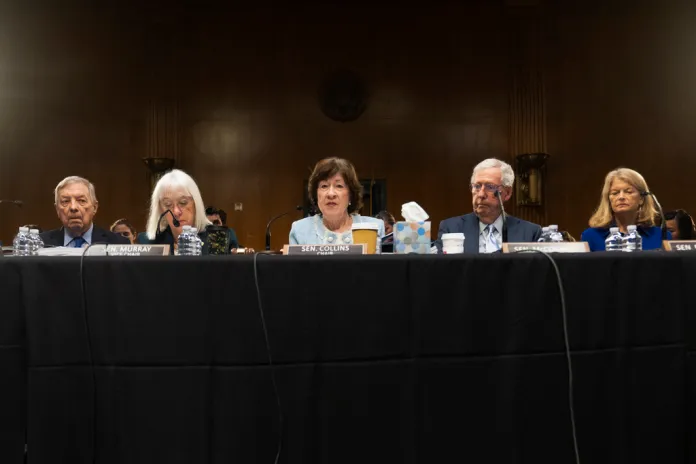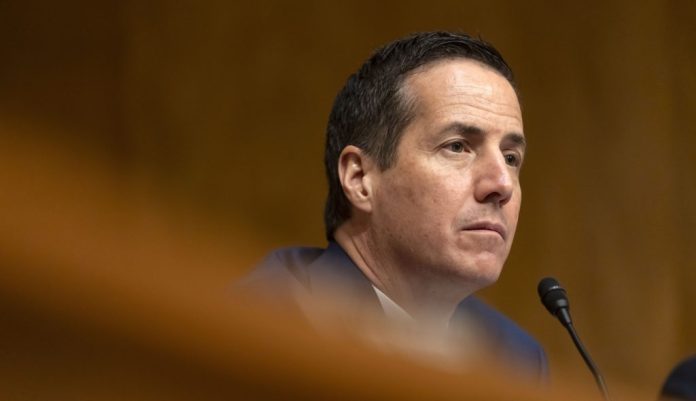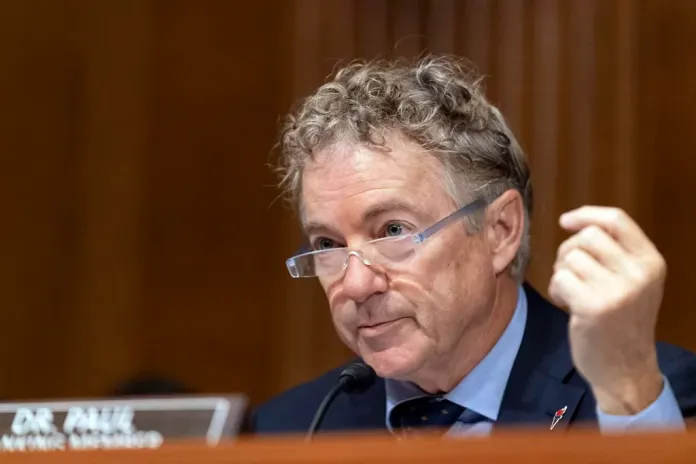Rand Paul revives GOP trade fight with vote on ‘Liberation Day’ tariffs – Washington Examiner
Senator Rand Paul (R-KY) is reigniting divisions within the GOP regarding trade policy as the Senate prepares for a vote to repeal President Donald Trump’s “Liberation Day” tariffs implemented earlier this year. This vote, scheduled for Wednesday, aims to overturn the tariffs despite the White House having temporarily paused them due to economic instability. paul, alongside Democratic Senator Ron Wyden (OR), insists on discussing the tariffs, which have sparked mixed reactions among Republicans. While some GOP members have supported renegotiating trade terms, concerns linger about Trump’s unilateral tariff powers and thier economic impact.
The resolution to repeal the tariffs is deemed privileged, meaning GOP leadership cannot easily block it, leading Senate Majority Leader John Thune (R-SD) to predict its likely passage. In the House, though, Speaker Mike Johnson (R-LA) has prevented similar measures from advancing. The resolution against Trump’s tariffs is seen as a symbolic rejection of the administration, reflecting a departure from the party’s traditionally pro-free trade stance.
Paul emphasizes that his resolution is about principle rather than challenging Trump directly.Despite his support for Trump’s broader agenda, he cautions against excessive executive power in trade matters. Simultaneously occurring, Trump’s administration is pursuing over a dozen trade deals, aiming to alleviate concerns about the ongoing tariffs that could negatively affect the economy. The internal GOP conflict highlights a notable moment in trade politics as Republicans navigate their relationship with the Trump administration.
Rand Paul revives GOP trade fight with vote on ‘Liberation Day’ tariffs
Sen. Rand Paul (R-KY) is renewing GOP divisions over trade as the Senate prepares to vote on the repeal of President Donald Trump’s global tariff emergency.
The Senate will vote as soon as Wednesday on a resolution that reverses the “Liberation Day” tariffs Trump announced on April 2, even after the White House paused those duties for 90 days in the face of a market crash and turbulence in the bond market.
Republicans have nervously given Trump leeway to negotiate a raft of trade deals, with the reimposition of tariffs serving as leverage, but Paul and Sen. Ron Wyden (D-OR), the Democratic co-sponsor, still want a vote.
The resolution is considered privileged, meaning GOP leadership, who can lose three Republicans on any party-line vote, are unable to stop their request.
On Tuesday, Senate Majority Leader John Thune (R-SD) all but acknowledged the measure will pass, citing an earlier effort by Senate Democrats to repeal more narrow tariffs on Canada. In that vote, four Republicans joined all Democrats to end the national emergency Trump declared to give himself tariff authority.
“I mean, you saw the last one. They had the votes last time. So, we’ll see,” Thune said. “I mean, my expectation is it could be similar in terms of, kind of what the vote count is on that.”
The resolution went nowhere in the House, where Speaker Mike Johnson (R-LA) has passed language to prevent Democrats from challenging Trump’s tariff authority. But the vote amounted to a symbolic rebuke of the Trump administration and divided a party that traditionally prides itself on free trade.
“Obviously, it’s a, you know, opportunity for the Democrats to put something on the floor that they think puts Republicans in an uncomfortable position, but I don’t think most Republicans at this point see it that way,” Thune said of this week’s resolution, describing the mood of his conference as “wait and see.”
“I think a lot of our members are willing to give the administration some time and some space to get some deals,” he added.
Beyond Democrats, the universe of potential “yes” votes lies in the seven Republicans who co-sponsored a separate bill that would sunset any tariff not approved by Congress after 60 days.
Paul and three of those Republicans — Sens. Mitch McConnell (R-KY), Lisa Murkowski (R-AK), and Susan Collins (R-ME) — voted for the Canadian resolution and could be expected to do so again. But Paul conceded additional support is unlikely.
He told the Washington Examiner that the sunset legislation, introduced by Sen. Chuck Grassley (R-IA) this month, is the way Republicans are choosing to “show displeasure” with the administration, with some not wanting to antagonize the White House further.
“I think it’d be a similar response,” Paul said. “It’d be interesting if we could get another person or two, but I think the Grassley bill sort of has become the off-ramp.”
Sen. Thom Tillis (R-NC), a co-sponsor of the Grassley bill, confirmed that he will not vote for the tariff repeal, calling it a partisan “shirts and skins exercise.” Several other co-sponsors were noncommittal or unaware the vote had been scheduled.
Sen. Todd Young (R-IN) declined to preview his vote but also described it as a “messaging” effort that had no chance of becoming law. On Monday, the White House promised to veto the resolution should it arrive on Trump’s desk.
Paul, a libertarian, has been careful to describe his resolution as a matter of principle and not an attempt to needle Trump. The two men have periodically clashed on policy, but Paul has warmed to the president over his agency-slashing Department of Government Efficiency and Cabinet picks like Health and Human Services Secretary Robert F. Kennedy Jr.
“I’m still supportive of Donald Trump. I voted for him, support him, love a lot of the things he’s doing, but we shouldn’t have a country ruled by emergency,” Paul said of the powers Trump is using on trade.
McConnell, the former majority leader and home state colleague to Paul, made similar remarks at a business forum last week, noting that Kentucky relies heavily on international commerce, with its bourbon exports particularly vulnerable to a trade war.
“It’s not an anti-Trump thing, in my opinion, but a structural thing,” McConnell, whose relationship with the president soured after the Jan. 6 riot, said. “Should the president have 100% of the authority in this particular area? And I think some of us think Congress probably ought to have some impact on that.”
Still, their vote against the Canadian tariffs on April 2, which came hours after Trump announced his “Liberation Day” duties, was viewed as the first legislative blemish of his second term. Trump subsequently chided all four Republicans who defied him, accusing them of playing “right into the hands of the Radical Left Democrats.”
Republican anxiety has calmed some since Trump imposed those tariffs. The administration has been eager to show progress in trade talks, with Treasury Secretary Scott Bessent telling reporters on Tuesday that 17 deals with major partners are in “motion.”
Trump has also taken steps to ease the tariffs’ impact, signing an executive order on Tuesday that prevents overlapping duties on the auto industry.
There is nonetheless an undercurrent of concern that Trump is harming the economy the longer the tariffs, some of which fall outside the 90-day pause, remain in place.
SCHATZ LINES UP WHIP SUPPORT WITH NO SENATE COMPETITORS
U.S. Trade Representative Jamieson Greere attempted to smooth over those concerns in a Tuesday lunch with Senate Republicans in which he briefed the conference on the state of negotiations.
The administration had previously stoked confusion over whether Trump wants the tariffs to be a temporary bargaining chip or a permanent trade barrier. The latter possibility, suggested by some of his advisers, prompted open pushback within a broader segment of Senate Republicans.
The uncertainty also spilled into Trump’s relationship with Amazon founder Jeff Bezos on Tuesday after reports that the retail giant would begin listing “import charges” on its website. Amazon denied the change after an angry call to Bezos from Trump.
" Conservative News Daily does not always share or support the views and opinions expressed here; they are just those of the writer."




